The Scientific Steering Committee is the body that leads the Congo Basin Science Initiative.
It is composed of 22 internationally recognised scientists from Democratic Republic of the Congo, Gabon, Cameroon, Republic of the Congo, Equatorial Guinea, Central African Republic, France, Germany, the UK, and US.
They cover expertise in climate science, forestry, ecology, hydrology, carbon cycle science, hydrology, soil science, wildlife science, biodiversity, botany, biogeochemistry, remote sensing, land-use change, conservation science, land management, human-environment interactions, disaster management, and environmental social science.
The co-chairs are Professors Raphael Tshimanga of University of Kinshasa, DRC and Simon Lewis of University of Leeds and University College London.
Committee Members

Dr Wilfried Pokam Mba
Lecturer, University of Yaoundé, Cameroon
Wilfried Pokam Mba is Senior Lecturer in Physics at the University of Yaoundé I in Cameroon. He is a climate modeller, focusing on central Africa climate variability and change, publishing over 50 scientific papers and book chapters. He was lead author of the Water Cycle Changes Chapter of the Sixth Assessment report of the Intergovernmental Panel on Climate Change. He was also a Contributing Author to the Africa Chapter of the Sixth Assessment Report. Pokam is a member of the Central African Panel on Climate Change (GEAC) and the Coordinated Regional Downscaling Experiment Initiative, and the Coupled Model Intercomparison Project (CMIP).

Professor Lucie Temgoua
Lecturer, University of Dschang, Cameroon
Lucie Temgoua is a Lecturer at the School of Agronomy and Agricultural Sciences, University of Dschang whose research interests focus on central African forests. She is permanent secretary of the Center for Studies and Research in Agronomy and Biodiversity. Trained in forestry, her research focuses on forest and agroforestry ecosystems, particularly the analysis of the dynamics of biodiversity and ecosystem services in forest landscapes utilised by people. Her research also focuses on climate change and the contribution of agroforestry systems to both climate mitigation and adaptation for farmers. She is co-author of around thirty scientific publications.
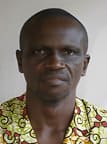
Professor Cyriaque-Rufin Nguimalet
Senior Lecturer, University of Bangui, Central African Republic
Cyriaque-Rufin Nguimalet is Senior Lecturer in Physical Geography at the University of Bangui, Central African Republic. His research focuses on hydrology and water resources, climate change and climate change adaptation, with peer-reviewed scientific papers published in international journals. His most recent publications focus on annual and multi-annual rainfall-discharge dynamics into catchments in the Northern Congo Basin, flood hazard occurrence, disaster risk reduction and the implications of low-flow regimes on people in the region. Since 2022 he has been a member of the Central African Panel on Climate Change (GEAC).

Dr Lydie-Stella Koutika
Director, Centre de Recherche sur la Durabilité et la Productivité des Plantations Industrielles (CRDPI), Congo, Republic of
Lydie-Stella Koutika is Director of Research at the Republic of Congo’s Centre for Plantations Research. She is a soil scientist with over 30 years of experience in applied research on agroecosystems and environment. Her research focuses on soil health and degradation processes to fight food insecurity and foster climate change mitigation and adaptation. She has published > 50 peer-reviewed journal papers and book chapters. She has won many awards, including the African Union Kwame Nkrumah Regional Scientific Award for Women (2014), the World Academy of Science Al-Kharafi Prize (2018) and UN Food and Agriculture Organisation Glinka World Soil Prize (2021). She is strongly dedicated to the development of Africa.
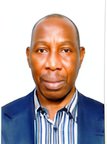
Professor Jean Joël Loumeto
Professor, Marien N’GOUABI University, Congo, Republic of
Jean Joël Loumeto is Senior Lecturer in Plant Ecology at Marien Ngoubi University, in Brazzaville, where he is Director of the Laboratory for Biodiversity, Ecosystemsa and Management. He holds two doctorates in Ecology awarded in France in 1986 and 2002. He has published widely on central African vegetation and ecology. He is the former Head of the Department of Plant Biology. He is an advisor to the Republic of Congo government on Sustainable Development and Climate Change. He is also Vice-President of the Congolese Association for Environmental Evaluation (ACEE) and President of the Environment Sub-Commission of the Diocese of Brazzaville.
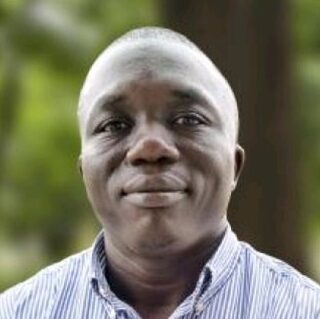
Mr Teodyl Nkuintchua
Congo Basin Strategy and Engagement Leader, World Resources Institute Africa, Congo, Republic of
Teodyl Nkuintchua is the Congo Basin Strategy and Engagement Leader for the World Resources Institute. He is an international development professional with over 13 years of experience in the field of natural resources management and organisational development and leadership. He is responsible for advancing the WRI’s mission in the Congo basin by engaging with key stakeholders, from the most vulnerable groups through to influential decision makers. Teodyl has previously worked at the Field Legality Advisory Group in Yaoundé and at the Centre for International Development and Training at the University of Wolverhampton, UK. He is dedicated to capacity development initiatives for civil society organizations in Africa.
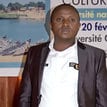
Professeur Michel Bisa Kibul
Professor of Political Geography and Political Sciences, University of Kinshasa, Democratic Republic of the Congo
Michel Bisa Kibul is Professor of Political Geography and Political Science at the University of Kinshasa. He is the Scientific Secretary of the DRC Governance Observatory and is the Academic Secretary General of the Pan-African University of Governance and Innovation. He holds a PhD in Political Science, and conducts research on land and natural resources governance, migration and sociology of conflict, community resilience, the construction of peace, and the social impacts of climate change, using qualitative and quantitative field research. He has published more than two dozen peer-reviewed studies focused on the political geography of central Africa.
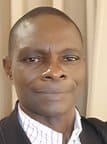
Professor Corneille Ewango
Professor, University of Kisangani, Democratic Republic of the Congo
Corneille Ewango is Professor of Tropical Forest Ecology and Management at the University of Kisangani, DRC. He was Scientific Director of the Centre de Formation et de Recherche en Conservation Forestière (CEFRECOF), a research and training centre in the Ituri Forest (2003-2006 and 2012-2017). He led the DRC team who mapped the central Congo peatlands, and is Project Scientist for the DRC Peatlands Management Unit and National Forest Inventories, providing scientific and technical support to government. He has published over 100 scientific papers and is a member of the Central African Group of Experts of Climate Change (GEAC). He is a recipient of the prestigious Goldman Environment Prize (2005).
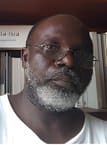
Professor Bila-Isia Inogwabini
Researcher and Professor, Swedish University of Agricultural Sciences, Sweden
Catholic University of Congo, Democratic Republic of Congo
Bila-Isia Inogwabini is Professor of Biodiversity at the Catholic University of Congo, in Kinshasa. He is Visiting Scholar at the Swedish University of Agricultural Sciences at Uppsala. Inogwabini has a BSc in Physics, MSc in Ecology, MA in Advanced Applied Ethics and a PhD in Biodiversity Science. He has published several dozen scientific papers, book chapters and books. His work led to the creation of two new protected areas, the Ngiri Triangle and the Tumba-Lediima Nature Reserves, and the classification of the Ramsar site Ngiri-Tumba-Maindombe. He is the recipient of the UNESCO Young Scholar Award (2006) and the National Geographic Leadership in Conservation in Africa (2007).
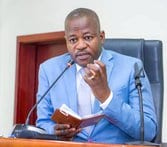
Professor Raphael Tshimanga
Co-chair of Congo Basin Science Initiative (CBSI)
Director, Congo Basin Water Resources Research Center – CRREBaC & School of Water, University of Kinshasa, Democratic Republic of Congo
Raphael Tshimanga is Professor of Hydrology and Water Resources at the University of Kinshasa, DRC. He is Director of the School of Water and the Congo Basin Water Resources Research Center (CRREBaC, www.crrebac.org). He co-developed the Congo Basin Catchment Information System, a water resources management tool, and is author of more than 100 peer-reviewed publications. His is Co-Chair of CBSI and President of the Central African Group of Experts of Climate Change (GEAC). Currently he is also a Research Fellow under the Feature African Independent Research (FLAIR) programme of the UK Royal Society and African Academy of Science.

Professor Maximiliano Fero Meñe
Research Director and Professor, National University of Equatorial Guinea, Equatorial Guinea
Maximiliano Fero Meñe is Professor of Botany and Dean of the National University of Equatorial Guinea, since 2014. He holds two Masters, one in Conservation Biology (2009) and the second in Nature Management and Conservation (2009), as well as a PhD in Biology (2012). He has published widely on botany and the impacts of hunting in tropical forests. As Dean he manages aspects of policy, training, and advocacy for research, including linking the university to respected research groups at the regional and international levels. He is a member of the “Flora of Equatorial Guinea” project, contributing to the editing of a number of volumes, checklists and revisions of the local flora.
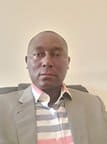
Mr Gaspard Abitsi
Country Director – Wildlife Conservation Society (WCS) Gabon programme, Gabon
Gaspard Abitsi is Country Director of Wildlife Conservation Society Gabon. He is a conservation practitioner with almost twenty years’ experience working in partnership with the private sector, government representatives and the local community in Gabon. He is interested in understanding how various land use strategies, such as logging, mining, fishing, and protected area management, differentially impact wildlife, habitats, and local community livelihoods. He is a member of the Board of Directors of the Foundation for the Tri-National Sangha, Gabon’s national parks service Management Committee, and Congo Basin Forest Partnerships as co-leader for the College of International NGOs.
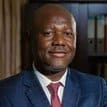
Professeur Alfred Ngomanda
Commissaire Général (Executive Director), Centre National de la Recherche Scientifique et Technologique (CENAREST) du Gabon
Alfred Ngomanda is Executive Director of Gabon’s National Centre for Scientific Research and Technology (CENAREST), and Professor of Forest Ecology at the Institute for Research in Tropical Ecology (IRET). His research focuses on understanding the effects of environmental changes (past, present and future), of natural or anthropogenic origin, on the ecology and plant biodiversity of the forests of the Congo Basin. He has published over 50 peer-reviewed scientific papers on central African tropical forests. He teaches in universities and higher education institutions across Gabon (University of Masuku, and Ecole Nationale des Eaux et Forêts) and in Central Africa (University of Kinshasa-ERAIFT), to build capacity across the region.

Dr Georges-Noel Longandjo
Research Fellow, University of Cape Town, South Africa
Senior Lecturer, Institut Supérieur des Techniques Appliquées (ISTA), Democratic Republic of Congo
Georges-Noel Longandjo is Senior Lecturer at Institut Supérieur des Techniques Appliquées and Research Fellow at University of Cape Town. Trained as a physicist, his research addresses understanding the climate dynamics over central and southern Africa. He has published several peer-reviewed scientific papers in internationally leading journals. He has more than ten years of experience as a Research Scientist and a Remote Sensing/GIS professional. He is also involved in capacity building, training and institutional development. He was a contributing author on the 2021 IPCC Sixth Assessment Report (AR6) on “Weather and Climate Extreme Events in a Changing Climate”.

Professor Carlos Nobre
Co-Chair, Science Panel for the Amazon
Professor of Earth System Science, University of Sao Paulo, Brazil
Carlos Nobre is a Brazilian Earth System scientist with a PhD in Meteorology from the Massachusetts Institute of Technology (MIT), USA. Nobre’s work focuses on the Amazon and its impacts on the Earth system, publishing over 200 scientific papers. He chaired the Large-Scale Biosphere-Atmosphere Experiment in Amazonia (LBA). He was National Secretary for Research and Development Policies at the Ministry of Science, Technology & Innovation of Brazil and President of Brazil’s Agency for Post-Graduate Education (CAPES). He has been a member of the Intergovernmental Panel on Climate Change (IPCC). He is honoured as a foreign member of the US National Academy of Sciences, and member of the Brazilian Academy of Sciences.

Dr Gilvan Sampaio De Oliveira
Earth Sciences General Coordinator, National Institute for Space Research (INPE), Brazil
Gilvan Sampaio is the Earth Sciences General Coordinator at Brazil’s National Institute for Space Research (INPE), where he has been for 28 years. His areas of expertise are biosphere-atmosphere interactions, climate modelling and paleoclimatology, publishing over 50 peer-reviewed scientific papers. From 2019 to 2020 he was the General Coordinator of the Center for Weather Forecasting and Climate Studies (CWPCP) at INPE, and before that head of the Operations Division (2016-2019). From 2009 to 2016 he was head of the Group of Biosphere-Atmosphere Interactions at the Earth System Science Centre at INPE.

Dr Jean-Jacques Braun
Senior Scientist / Director of Research, IRD, French National Research Institute for Sustainable Development, France
Jean-Jacques Braun a Senior Scientist at the French National Research Institute for Sustainable Development. He is a geochemist and a specialist in integrated studies of the tropical Critical Zone, including initiating an observatory in Cameroon. He has published over 150 scientific studies. He has more than 25 years of experience in field studies, research and development projects, and team management. He co-manages the International Joint Laboratory “Dynamics of Central African forest ecosystems in a context of global change”, and leads the development of the Centre in Environmental Biogeosciences, Cameroon. He leads the project “Global change impact on vulnerable carbon reservoirs” focused on the Ogooué river basin.
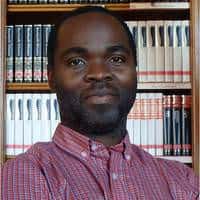
Dr Symphorien Ongolo
Research Fellow, IRD, French National Research Institute for Sustainable Development, France
Symphorien Ongolo has been a Research Fellow at France’s Institute of Research for Development (IRD) since December 2020. He is a political scientist whose research focuses on power dynamics, links between globalization and governance of natural resources in the countries of the South and in Africa in particular. He has published widely on these topics, particularly central Africa. Before joining the IRD, he was a postdoctoral Alexander von Humboldt Research Fellow within the “Forest and Nature Conservation Policy” Chair at the University of Göttingen – Germany. He holds a PhD in Political Science from the Swiss Federal Institute of Technology in Zurich (ETH).
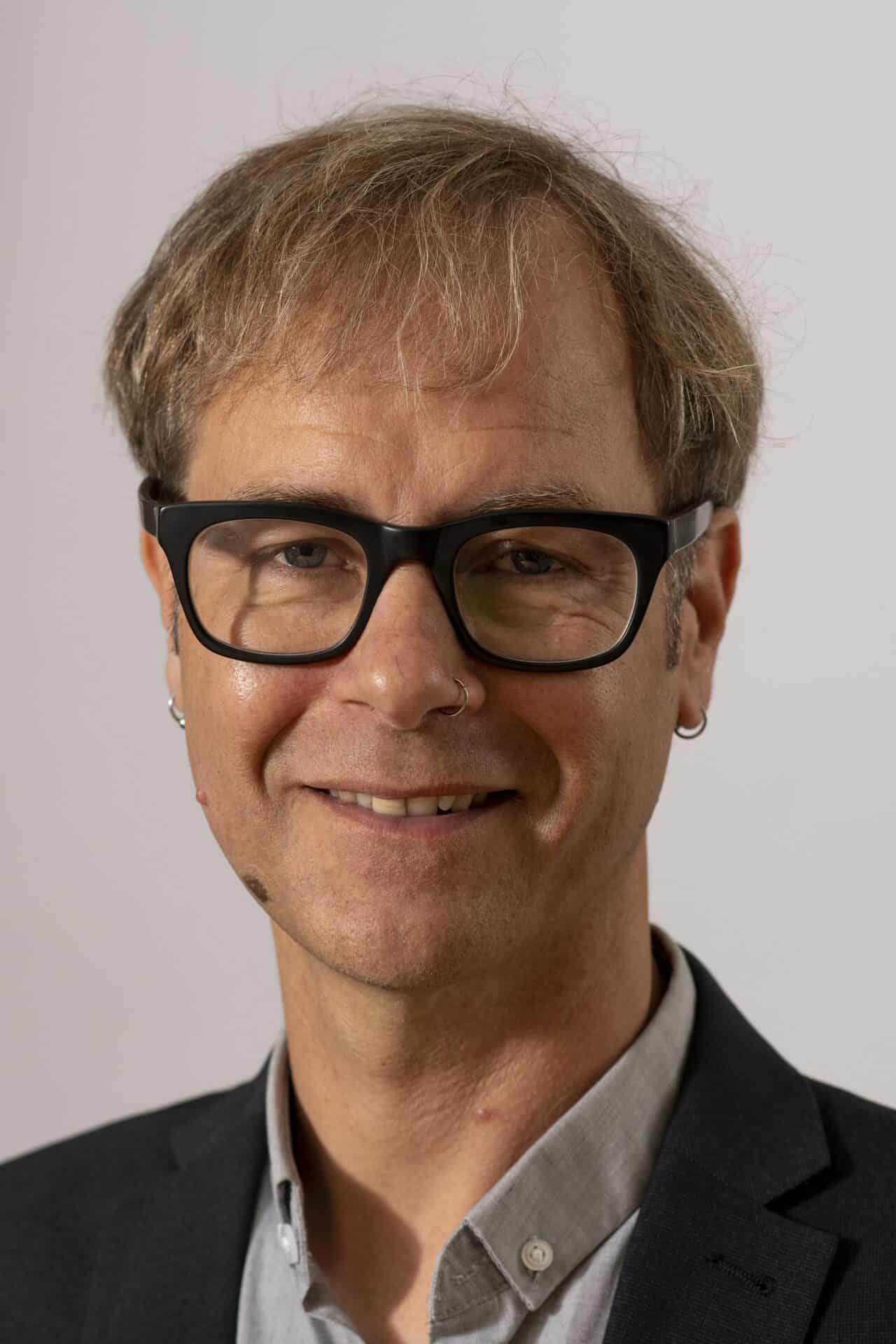
Professor Simon Lewis FRS
Co-chair of Congo Basin Science Initiative (CBSI)
Chair in Global Change Science at University of Leeds and University College London, UK
Simon Lewis is Professor of Global Change Science at both University College London and the University of Leeds. He is author of over 160 scientific publications on how humans are changing the Earth system, with major discoveries including quantifying the globally significant carbon sink in intact tropical forests, including the first evidence from the Congo Basin, and mapping the world’s largest tropical peatland complex in the heart of the Congo Basin. He co-founded and co-manages the African Tropical Rainforest Observatory, the global data repository and management tool forestplot.net, and the CongoPeat network. He was elected a Fellow of the Royal Society in 2023.
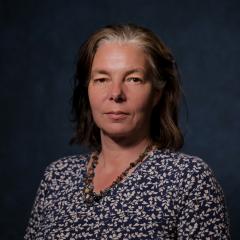
Professor Nicola (Nicky) Anthony
Professor, University of New Orleans, USA
Nicola Anthony is Professor and endowed Chair in Wildlife Sustainability at the University of New Orleans. Her focus is on the conservation genetics and evolutionary diversification of central African tropical forest vertebrates. She has worked for over 20 years with the Université des Sciences et Techniques de Masuku (UTSM) in Gabon and in two international partnerships (CAB-Alliance and ECOTROP) engaging in conservation research, education and scientific training. She has delivered professional development workshops and international field schools that partnered students from the US and Gabon on joint research projects. She is committed to developing ways to promote biodiversity capacity building in the Central African region.

Dr Michael Keller
Research Physical Scientist, USDA Forest Service, International Institute of Tropical Forestry, USA
Michael Keller is a Senior Scientist with the US Forest Service International Institute of Tropical Forestry and Distinguished Visiting Scientist at NASA’s Jet Propulsion Laboratory. He has published over 200 scientific papers. He was the US scientific leader for the Large-Scale Biosphere Atmosphere Experiment in Amazonia (LBA) for ten years, followed by being Project Scientist for the National Ecological Observatory Network (NEON) its guiding the scientific development of the observatory, and then technical leader of the US-Brazilian Sustainable Landscapes Program. Keller is honoured as a Fellow of the American Association for the Advancement of Science and the Brazilian Academy of Sciences.

Ms Emma Torres
Vice President for the Americas, Sustainable Solutions Development Network (SDSN), New York, USA
Emma Torres is Vice-President for the Americas and Head of the New York office of the UN Sustainable Development Solutions Network (SDSN) led by Professor Jeffrey Sachs. SDSN is a global network of more than 1,700 universities and knowledge institutions committed to advancing the Sustainable Development Goals (SDGs) and other agreements such as the Paris Agreement on Climate Change. An economist by training, she also serves as Strategic Coordinator of the Science Panel for the Amazon (SPA), composed of more than 250 Scientists, which issued its report on the State of the Amazon at COP 26 in November 2021.